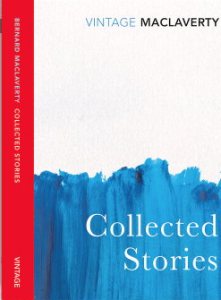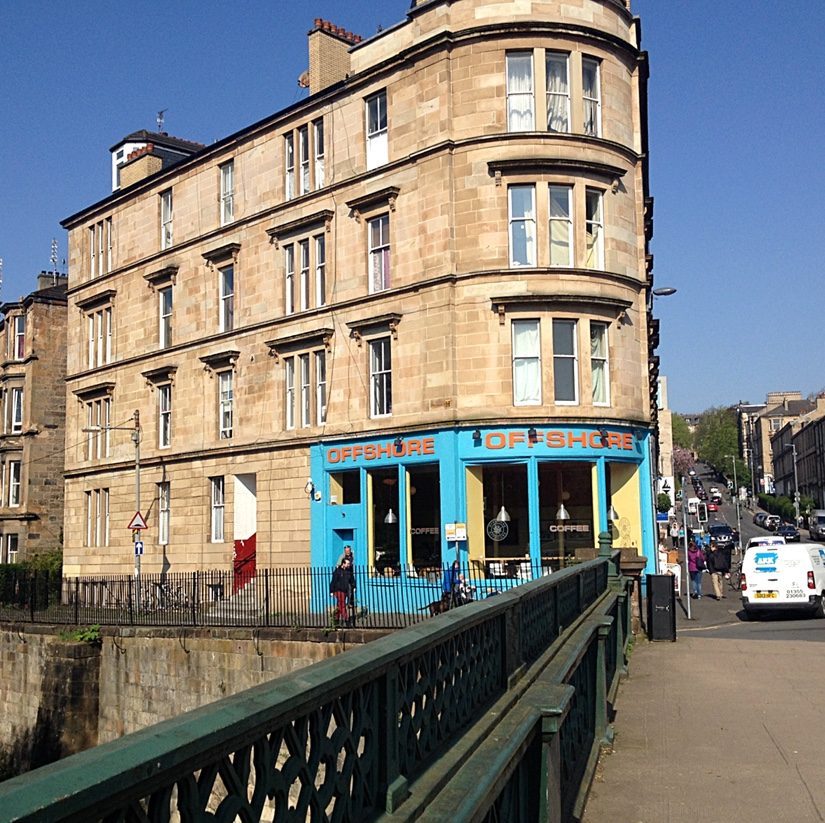Bernard MacLaverty: Glasgow Writer

Scottish Writers Over 70 Talking About Creativity in Later Life – part of Book Week Scotland in Association with Aye Write! Mitchell Theatre, Wednesday, 21 November, 2018
Bernard MacLaverty, Book Week Scotland, Kelvin Hall, 2 December, 2017
Bernard MacLaverty 29 November, 2017 Dalmuir Library
It’s a fantastic book I loved every page from start to finish –Pat Byrne buy Midwinter Break.

(Review of ‘Midwinter Break’ by Justine Jordan in The Guardian)
I love going along to Literary Events in Glasgow and some of my favourite excursions last year (2014) involved listening to readings by the Northern Irish, Glasgow based author, Bernard MacLaverty. He performed at two brilliant events I attended were Literary Lunchtimes at Bar Gandolfi in Glasgow’s Merchant City and the Wee Literary Festival at St Louis, Bar Cafe in Partick.
The St Louis event was part of the launch of MacLaverty’s Collected Stories, which for the first time pulls together all of his short stories. I am very glad I bought this book. My choice of favourite story changes as I dip into this wonderful collection, which spans over fifty years. At St Louis he read the story ‘Walking The Dog’. MacLaverty is an impressive performer and as he recounted the brief but harrowing experience of one man during The Troubles in Northern Ireland. the atmosphere was palpable with fear.
More recently another of the writer’s short stories, ‘Remote’, was dissected and critiqued at a creative writing workshop I attend at the University of Glasgow. Without exception everyone in the class was moved by this emotional story about loneliness and growing old. It was an excellent choice – an example of mastery in writing technique. There is no doubt that MacLaverty is a gifted writer, as the many awards and prizes he has won confirm. The scope and scale of his work is also very impressive.
Apart from his five collections of short stories, encompassed within the Collected Stories, he has written four novels: ‘Lamb’, ‘Cal’, ‘The Anatomy School’ and ‘Grace Notes’ – which was shortlisted for the Booker Prize and won the Saltire Scottish Book of the Year Award.
His creativity appears to know no bounds – he has also written for radio, television and screen. Much of his work draws on personal experience. For example, his radio play ‘Winter Storm’, performed by John Gordon Sinclair, is based on MacLaverty’s experience working as writer-in-residence at Iowa State University during one cold, cold winter. He has enjoyed major success, some of which was unexpected – his short film ‘Bye-Child’ was nominated for a BAFTA Best Short Film and he won a Scottish BAFTA for Best First Time Director. The film was inspired by a poem by Seamus Heaney, a fellow member of the Hobsbaum Workshop, which they both attended in Belfast in the 60s. I didn’t know the poem; Bernard explained that it was ‘a sad tale of abuse.’

Certainly he cannot be accused of shying away from awkward subjects; his short story ‘The Assessment’, which deals with the topic of dementia: ‘people going into homes and all the difficulties this involves’, was developed into the radio play ‘The Woman from the North’. After listening to the play a female academic, an expert in dementia, got in touch with Bernard to suggest using it as a teaching tool. This became a reality via the University of Stirling and has been used to help people understand the complex and delicate matters that arise for people suffering from this harrowing condition. Surely, a tribute to MacLaverty’s grasp of the intricacies of the difficult subject matters he deals with, in conjunction with his openness to new projects.
Another sphere he has entered into with enthusiasm is writing libretti, which can be seen through his work with Scottish Opera. Two pieces were produced for the Five:15 series: ‘The King’s Conjecture’ with music by Gareth Williams and ‘The Letter’ with music by Vitaly Khodosh .
He also wrote an hour long opera, ‘The Elephant Angel’, again with music by Gareth Williams. Produced by Scottish Opera the opera was written for schools and toured Scotland and Northern Ireland. The story is fascinating. Set in the zoo in Belfast during the Second World War it’s based on the true story of a female zookeeper, who saved a baby elephant, Sheila, from destruction. The authorities feared that if the zoo was bombed by the Germans wild animals would escape to harm people so they destroyed most of them. As a child Bernard saw Sheila in the zoo in the nineteen fifties. He also explained how ‘Gavin took popular Belfast street songs and skipping rhymes and wove them into the music. When people took to the shelters during the Blitz they sang hymns and the like to stave off fear.’

Both logistically and thematically a very challenging endeavour, which resulted in the opera being performed at twelve locations with thirty different groups of primary school children on stage – ‘at venues from Belfast Opera House to Omagh’s Strule Arts Centre’ with the set moved each time. Omagh was, of course, the place where sadly 29 people lost their lives at the bombing in 1998. The story of ‘The Elephant Angel’ is sad and the subject of war harrowing but it’s also an uplifting tale and a fascinating venture. I’m sure the scores of children involved had a wonderful time and learned a lot along the way.
Apart from learning about the varied enterprises Bernard MacLaverty has been working on, I also asked him a bit about his writing process. He informed me that we were sitting in the office where he undertook his writing and quoted writer, Isak Dinesen, that he wrote ‘a little every day, without hope and without despair’.
Bernard clearly gains as much pleasure from his work being put to such good use and the involvement of young children in his projects as he does from the success of his many publications.
(Glasgow is lucky to have such a remarkable writer living in the city and Bernard MacLaverty’s work continues to have considerable impact on the locals. He’ll be unaware of much of this – my friend, Susanne McGreevy was so smitten by his book Cal that she gave her son the name. And just yesterday (11 February, 2015) Glasgow composer Malcolm Lindsay’s CD ‘After The Snow’ dropped through our door. “This album is a collection of music written from the heart. Inspiration has come from various sources”– including Bernard MacLaverty – the album contains a track called ‘Grace Notes’)
Pat Byrne, February, 2015.
Bernard MacLaverty, Local Character, Glasgow West End by Pat Byrne, 2003.
This section: Books, Talks, Poetry and Creative Writing Events, writers, Writing
Filed under: Books, Talks, Poetry and Creative Writing Events, writers, Writing
Related Pages
- Book Launch: Whispers of the Dead, Lin Anderson
- Glasgow Literary and Music Lounge at Red Rosa’s
- Poems for Palestine, McNeills Glasgow
- Storytelling for Adults, Mary Edward – Blending Fact and Fiction review Pat Byrne
- Short Attention Span Theatre, 10 July, 2024
- Storytelling For Adults, Alexandria
- Melancholia by Nina Quigley
- Book launch: On The Scent Of The Honeyed Hive – Lesley O’Brien
- The Buttery, A True Glasgow Institution, review by Pat Byrne
- New Writer Showcase University of Glasgow
- Mika and Me Optical Studios – Exclusive Chanel Event
- West Fest 2024: Talks Programme: Niall Murphy Glasgow City Heritage Trust
- Bonnie Fechter: A Celebration of Sheila Templeton
- West Fest 2024: Talk: The Ancient and Historical Village of Partick
- Celebrating Robert Tannahill’s 250th Anniversary
- The Hunterian Friday Focus: Pollinators
- Glasgow Writers: Willy Maley
- Aye Write 2024: Victor and Barry’s Kelvinside Compendium
- Alumni Event, 60 Years of English & Creative Writing
- Queen MacBeth – Val McDermid with Nicola Sturgeon



Leave a Reply
You must be logged in to post a comment.